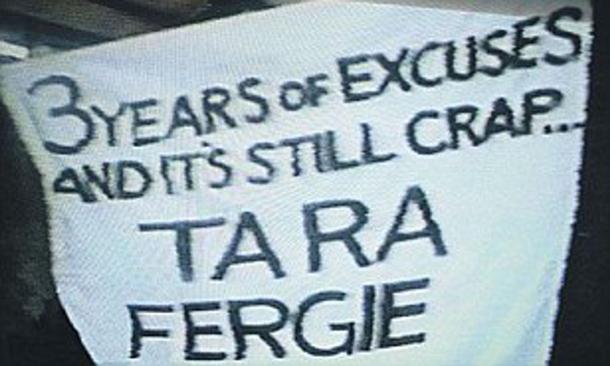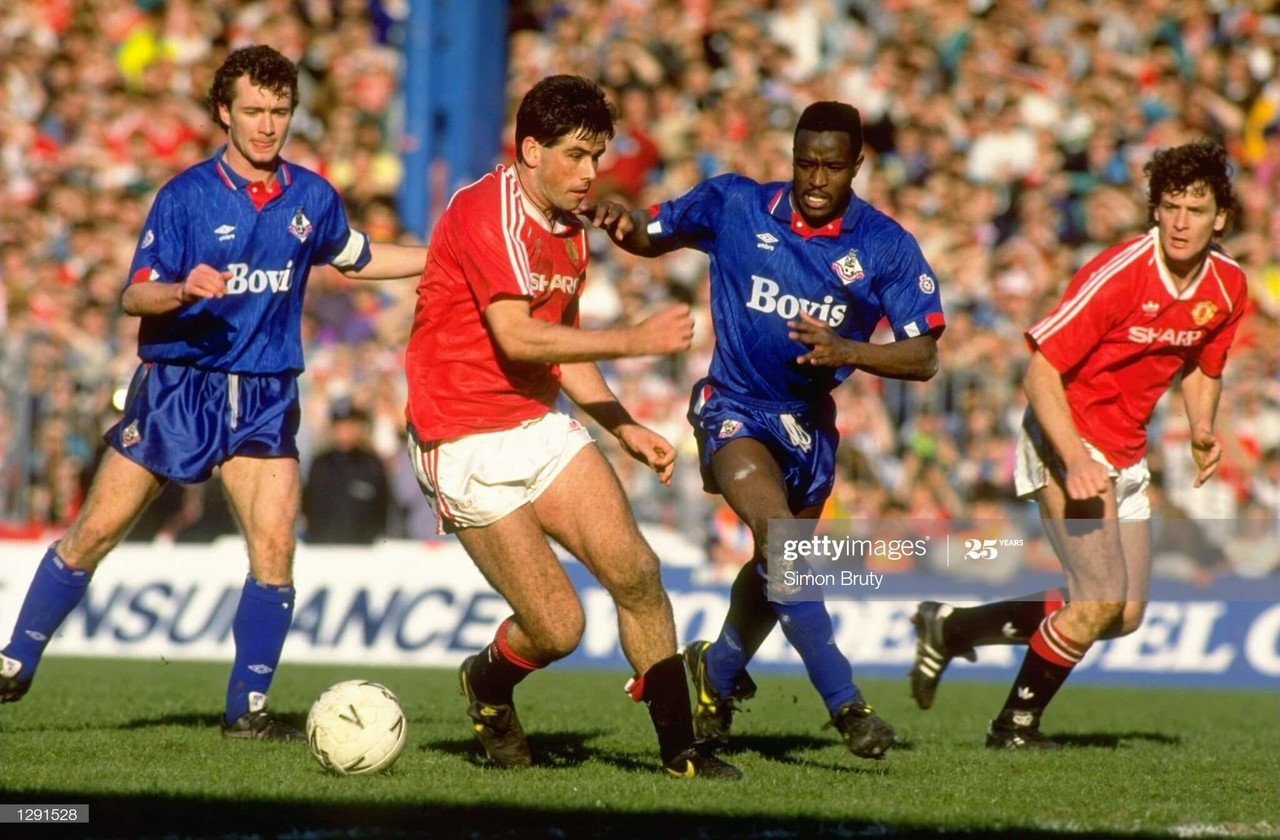It's April of 1990 and the world is a completely different place. The Stone Roses have risen to fame off the back of the release of their self-titled album and are a month away from playing what would become a historic gig at Spike Island.
Oldham Athletic's 'pinch me season', as Joe Royle called it, is in full swing, the second division side have qualified for the Littlewoods Cup final at Wembley after beating West Ham 6-3 on aggregate in March, the first leg gaining the name 'Valentines Day Massacre' for the Latics' 6-0 victory at Boundary Park.
Sir Alex Ferguson's career at Manchester United was on a knife-edge, the Reds suffering their lowest league finish since 15 years earlier when they were relegated from the top division, with the now-infamous 'Tara Fergie' banner having been displayed in December of that year during a 2-1 defeat to Crystal Palace.

The two local rivals had been drawn to play each other in the semi-final of the FA Cup, a game that would be played at the home of bitter rivals Manchester City, Maine Road - this was, of course, a time before neutral venues were introduced into the competition.
It was to be the first 'Super Sunday', Crystal Palace vs Liverpool at twelve; Oldham vs Manchester United at half-three, live on the BBC and split by a Sunday omnibus episode of 'Eastenders'.
Oldham's rise in the 1989/90 season stunned the nation, with the names of Frankie Bunn, Earl Barret, Andy Ritchie, Roger Palmer et al finding themselves becoming household names around the country; Ian Marshall's mullet a now-infamous symbol of '90s football.
The game
It took only three minutes for the game to find its spark. After a corner was deflected back out, an inswinging ball from Rick Holden was fumbled inside of the six-yard box by Jim Leighton and turned in by Earl 'The Pearl' Barrett, sending the Latics' supporters into pandemonium. 18,000 Oldham fans collectively sang 'We can play on grass as well', mocking the comments from others about the advantage that Boundary Park's plastic pitch may have given them.
Brian Robson and Neil Webb pulled it back for United in the 29th and 72nd minutes respectively. However, a three-minute margin was once again all that Joe Royle's Oldham needed. Interplay between Neil Redfearn and Denis Irwin on the right saw the ball crossed into the middle before Ian Marshall fired into the back of the net in front of the Oldham fans to pull the scores level.
It went to extra-time. Two minutes in, Danny Wallace used his pace to latch on to a through-ball and beat the Oldham defender, before slotting past the goalkeeper and making it 3-2 to United.
The second half of extra time gave the moment that cemented Roger Palmer into the history books. One of Oldham's midfield 'Yard Dogs', Mike Milligan, picked up the ball around thirty yards out, he played it low and hard on the ground to Ian Marshall who fired off a pass into the six-yard box. Ten years into his career at Oldham and with only a handful of minutes on the clock, Palmer turned the ball into the back of the net in front of the United supporters.
The aftermath
Speak to United and Oldham fans, and you will get different opinions about the replay. The Reds were 2-1 victors, but not without controversy. Oldham had a sure-goal disallowed by the referee. The Latics hit the woodwork multiple times, but it was just not to be.
Manchester United were victorious against their London-based opponents Crystal Palace in the final at Wembley, a result that probably saved the career of Sir Alex and one that signalled the shifting tides of success between Liverpool and United.
Oldham continued their rise for a handful of years after, earning promotion in the 1990/91 campaign with a last-minute penalty, and becoming founding members of the Premier League. Since then, the gaps between the two have continued to widen. United are now the most successful football club in the world, and still compete at the top level of the Premier League; Oldham languish near the bottom of League Two, memories of success under Royle a distant past.





































